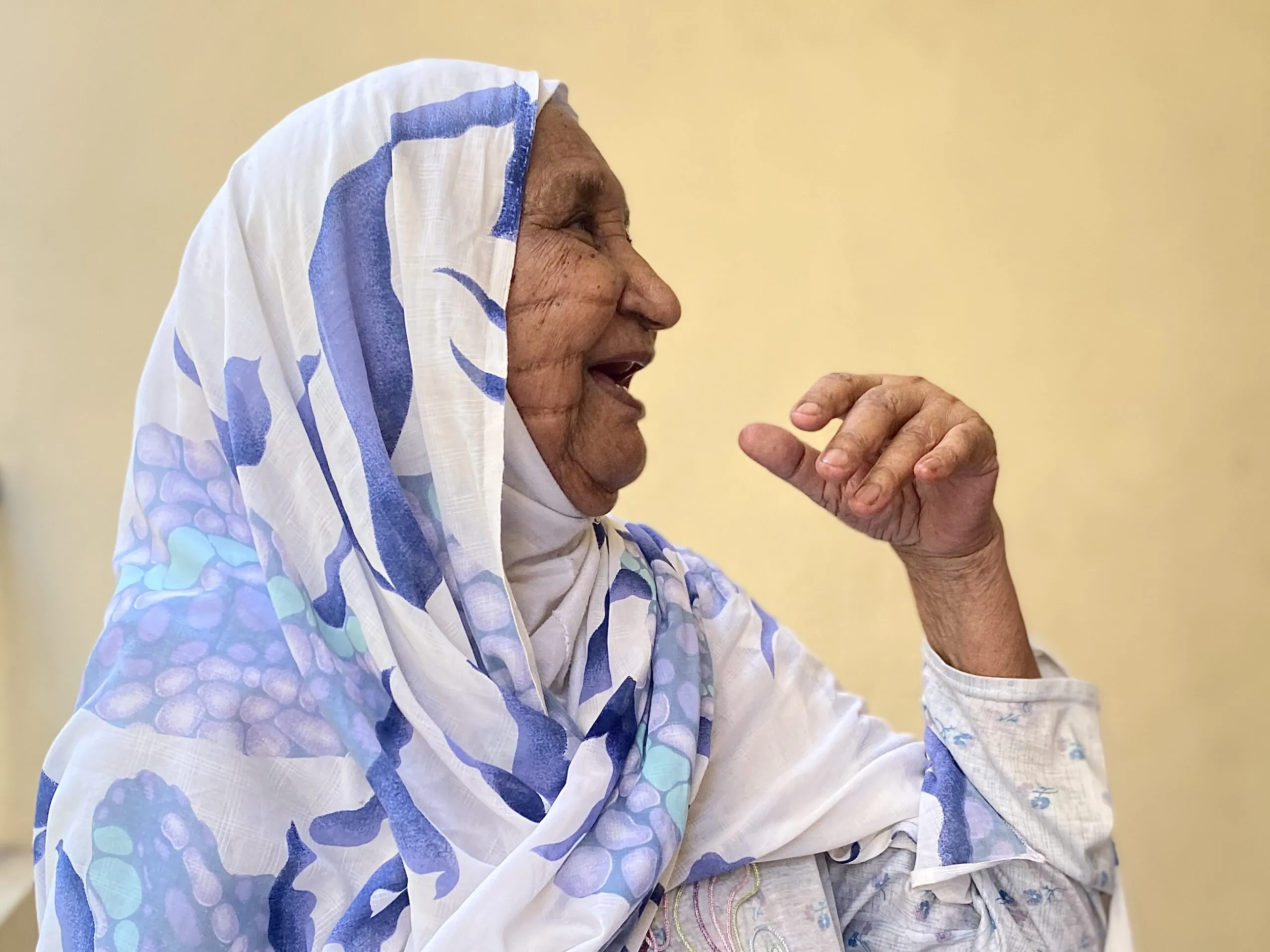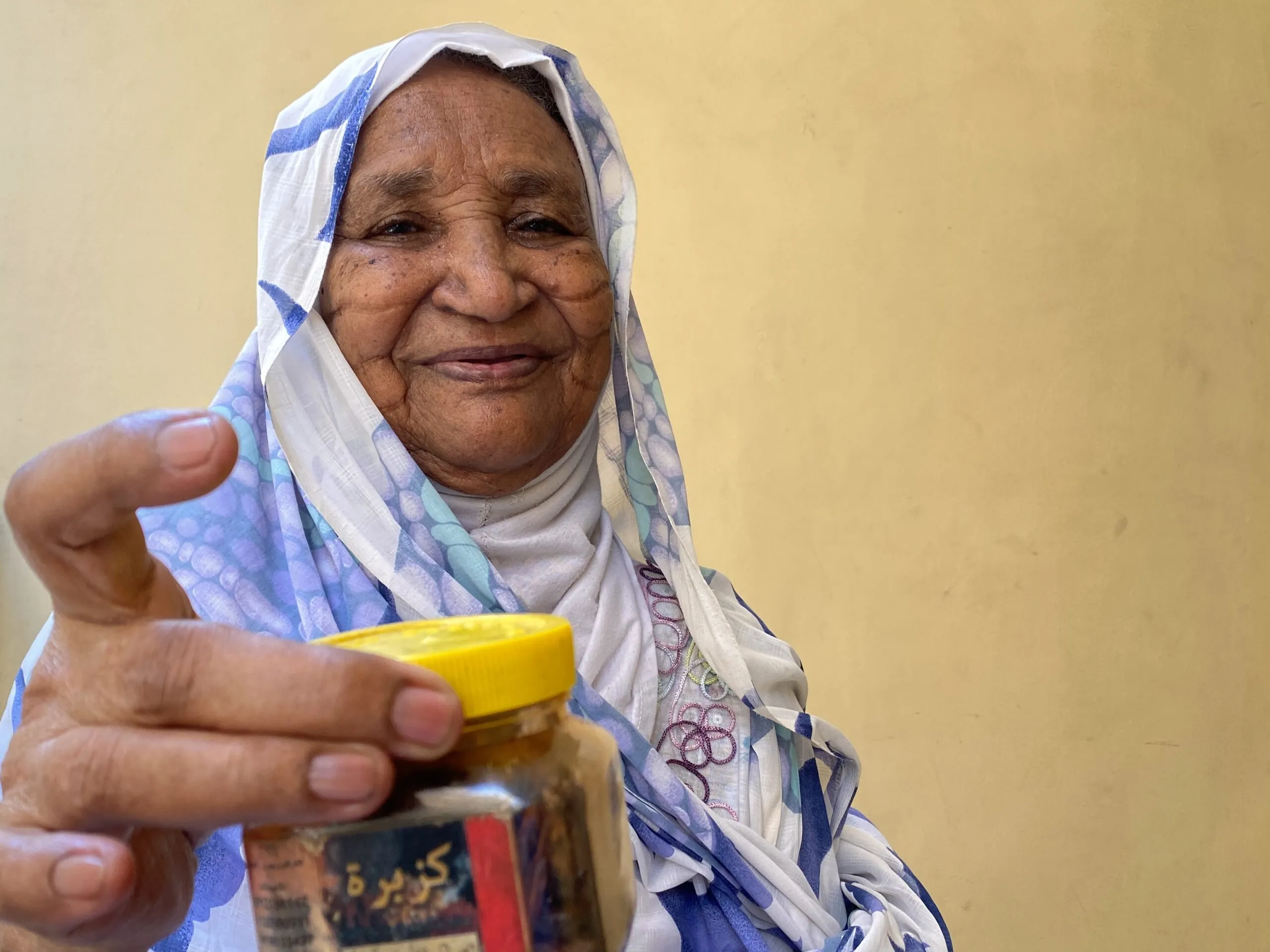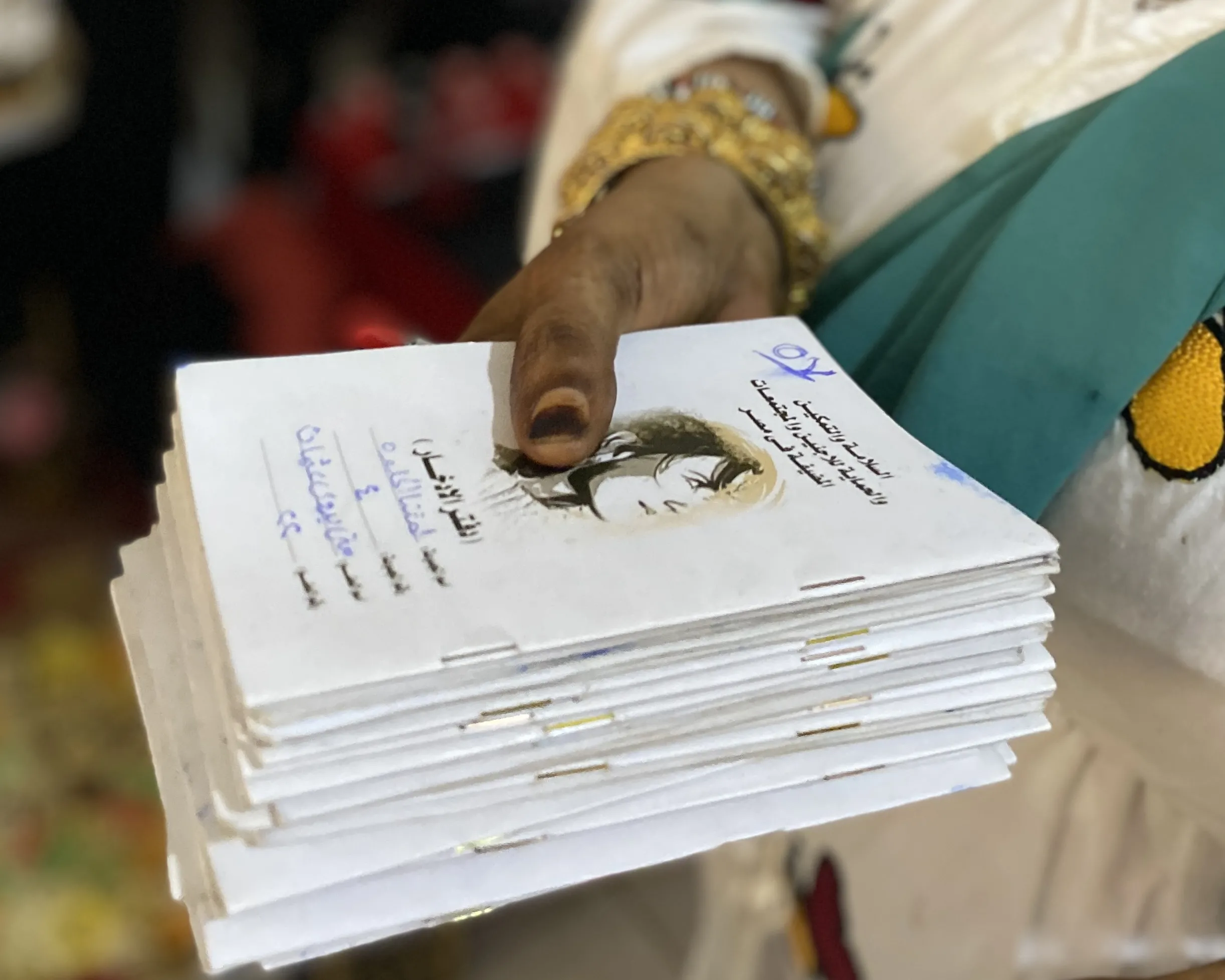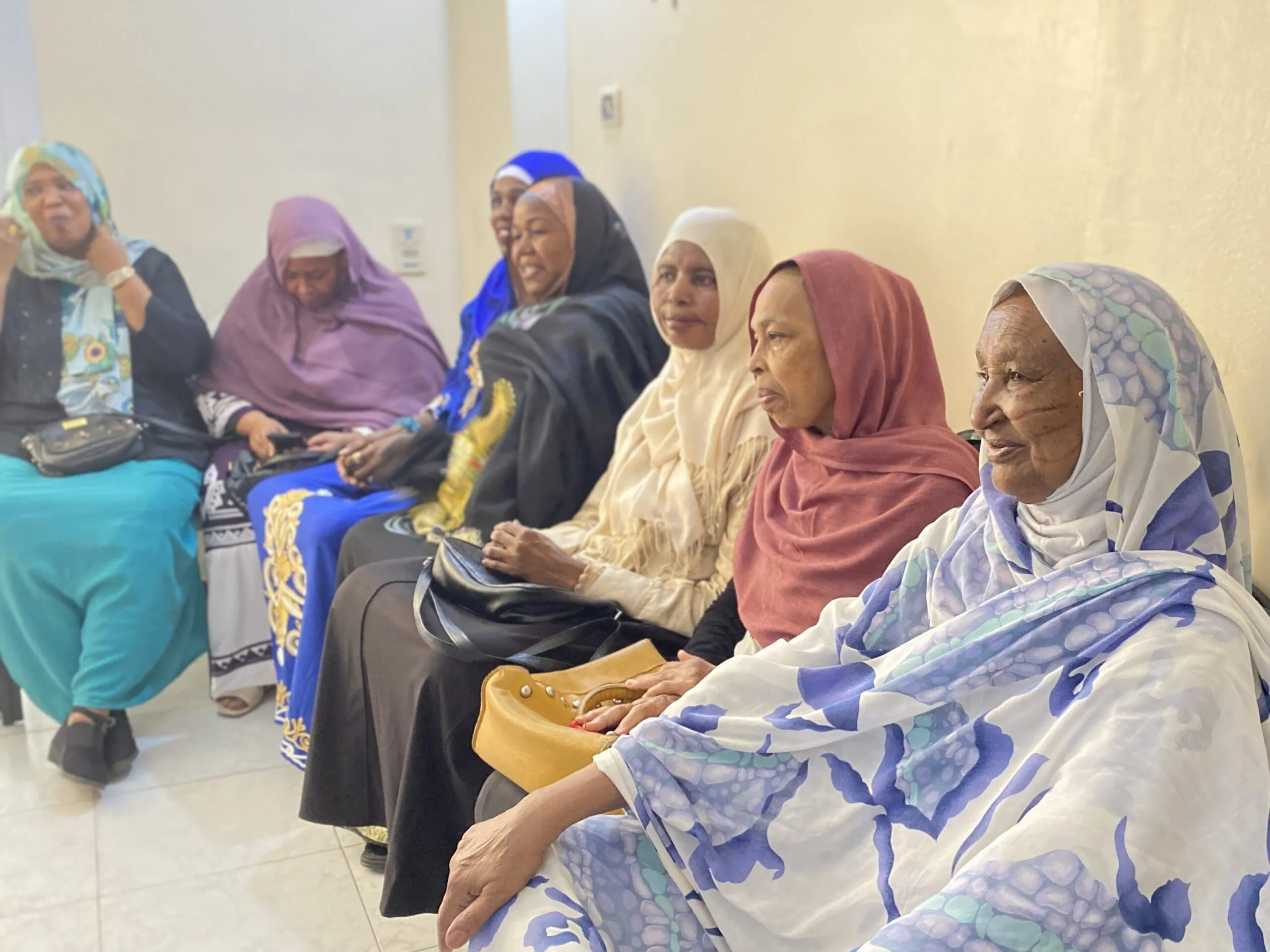Mother’s money
Fatima is the oldest member of a “El Lama El Helwa,” a group of 29 women in Cairo who meet regularly to pool their money and make collective financial decisions.
It’s one of many Village Savings and Loan Association (VSLA) groups CARE has worked with around the world since 1991.
As the women of El Lama El Helwa — loosely translated as “the best company” — gather around in the small room, the smell of Būkhur incense fills the air.
Amidst the ongoing Sudanese conflicts, the the United Nations has reported that 57% of households registering for refuge in Egypt are headed by women like these, who are part of the large refugee population living in greater Cairo.
They call Fatima “Umena,” which means “mother.”
Safety, peace, and empowerment
Bearing tribal facial scars she has had since the age of two, Umena Fatima joins in with the laughter, music, and celebration of the group’s last meeting of the year.
The music turns down, and it’s time to announce the final savings amount. As Fatima and the others gather around, the group leader announces that they’ve saved over 100,000 EGP, which is roughly the average Egyptian’s annual salary.
It’s an extraordinary number, and the highest that CARE Egypt has seen from a group like this.
Cheers and zagharit, the traditional ululation uttered by women in the region during celebratory occasions, fill the room.
The women celebrate by saying a group prayer for the safety of their children, and for peace to be restored to their homeland.




